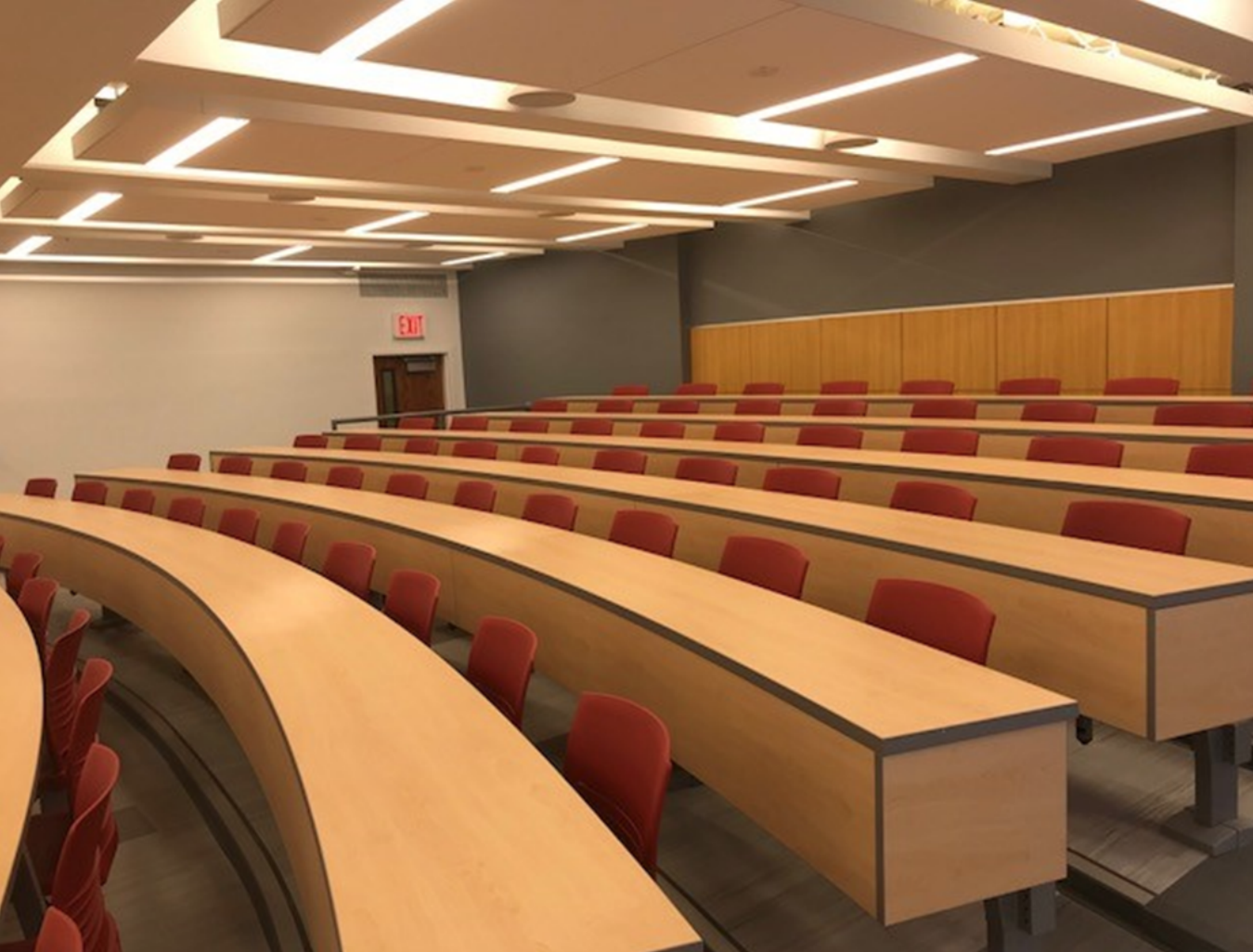

By Gabriela Flores and Serin Sarsour
The age of Zoom is seemingly coming to an end. With more Brooklyn College and CUNY classes moving back on campus, many professors are eager to get back into their classrooms and interact with students. As COVID-contractions continue, however, many are keeping an eye out for any potential cases.
“We haven’t had an issue, but I would feel really responsible if students weren’t following masking protocols or if students came and caused an outbreak in the classroom,” said Political Science Professor Cody Campbell. “I would feel morally responsible for that.”
When COVID forced the university to shut down back in March 2020, Campbell and other professors had to shift gears and run their lessons virtually. Initially, Campbell carried out his class asynchronously during BC’s first semester under quarantine. Months later, he taught complex political theories for 5 courses from his basement. There, he saw how Zoom fell short of a classroom setting, especially with class discussions and social interaction.
“I don’t think my classes were really bad online or something. I think anyone, regardless of how good of a teacher you are, can’t teach online as good as they could teaching in-person,” Campbell said.
For Don Hecker, a Television, Radio, and Emerging Media (TREM) professor, teaching students online has similarly resulted in some shortcomings that would have otherwise been nonexistent in person. “I really miss the easy back and forth with the students,” Hecker said, describing his class’s pre-COVID conversation to be “like 18 TV shows going on at once.”
Hecker’s Multimedia Editing course was set to be in BC’s Journalism Lab this fall, but with not enough students uploading their vaccine verification, the class moved online one week before the semester’s start. If more students upload their COVID-jab proof by CUNY’s deadline this Thursday, the administration will give Hecker’s class the green light to continue in person.
“The same information they would have got if we had done it all in-person, they’re getting this way [online],” Hecker said. “The same information, not the same experience. And I do think the in-person experience is better, certainly for me.” He noted that though he prefers in-person instruction and network students with his colleagues in the industry, he adapted smoothly and quickly to his first remote course at BC. Hecker also found that the BC administration’s decision was justifiable given how the Delta COVID-variant has spread rapidly.
“We’ve been dealing with COVID for a couple of years now, and just about the time we think we understand it, it comes up with something newer and deadlier,” Hecker said. “I think we need to be always thinking very carefully about what we’re going to do in case the darn thing whips back on us again.”
Both Hecker and Campbell find Brooklyn College’s reentry plans effective and well-thought-out. The college’s enforcement of mask-wearing, vaccine mandate, and other preventive COVID measures are what ultimately made them feel safe enough to return to campus. For Campbell, who is currently instructing three in-person classes at BC, he knows that not all students may feel equally optimistic about returning to campus during a pandemic.
“I don’t think it’s a healthy learning environment if people are nervous about dying, that doesn’t help anybody,” he said.
On the other hand, Philosophy Professor Alex Mendez says, “I personally feel comfortable coming to campus. I think that CUNY is doing a good job at requiring students to show proof of vaccination and ensuring the health and safety of students.”
Mendez was eager to return to campus because he believes that “teaching in-person is an erratically different experience than teaching on zoom or online. You can engage with students in a different manner and I personally think it’s better.”
Similarly, TREM Professor Bruce Rabinowitz was thrilled to get back in the classroom. Rabinowitz faced challenges while teaching through a screen. “I didn’t feel I was able to inspire meaningful discussions with students because it’s just so hindered online. I just don’t think it can take the place of personal interaction and the enthusiasm of the students, as well as myself, when in-person,” he says.
Mendez expresses the importance of the students and faculty working together to ensure a successful return to campus. “I think if professors are lenient and understanding of the complications that come with not only the pandemic but also the usual problems that come along with family, friends, economic situations, etc., and students are equally working with the professors, there’s no reason why it shouldn’t go smoothly.”
“I think we’re doing a great job, and hopefully by the spring things will be a little bit better in terms of both the pandemic and the restrictions,” Mendez adds.
